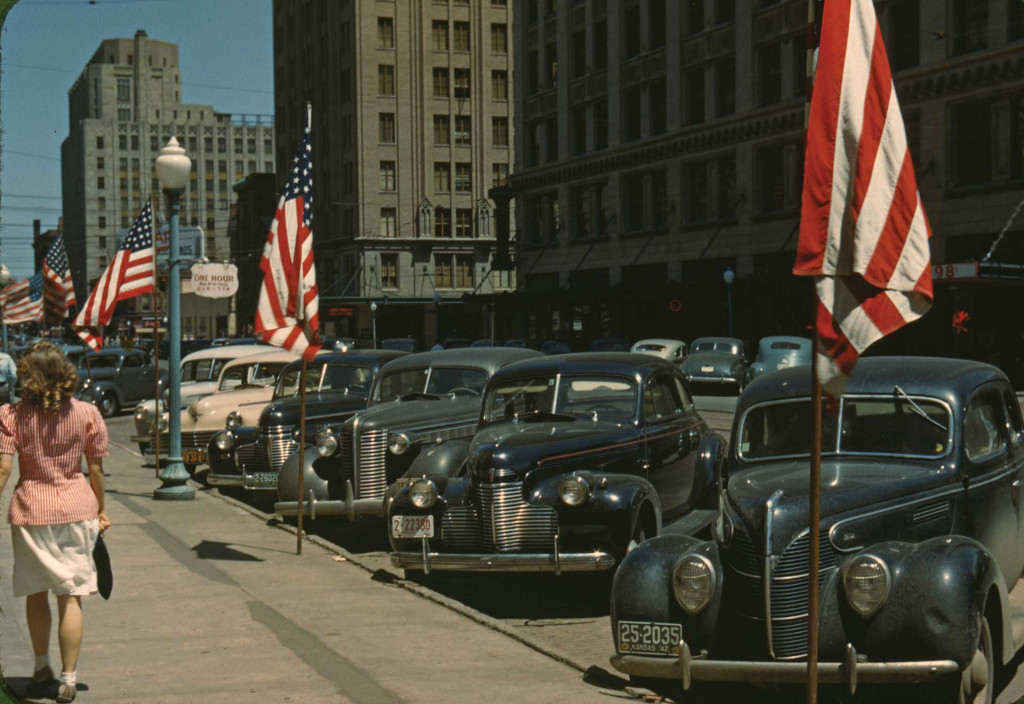
By David L. Bristow, History Nebraska
John Vachon (1914-1975) was not yet a famous photographer when he arrived in Omaha in October 1938. It was his first extensive solo trip shooting photos for the U.S. government’s Farm Security Administration. Partly as a way to build support for the New Deal, the agency was creating a nationwide pictorial record of the Great Depression.
Vachon’s supervisor gave the 24-year-old a great deal of leeway in the Omaha assignment. Vachon recognized the opportunity he had been given: “For the past year, I had been sedulously aping the masters. And in Omaha, I realized that I had developed my own style with the camera. I knew that I would photograph only what pleased me or astonished my eye, and only in the way I saw it.”

From Omaha, Vachon headed west, photographing scenes in Lincoln, North Platte and a handful of other Nebraska communities. The photos he added to the FSA’s files provided a visual cross-section of the state at that time, capturing the human drama in ordinary scenes.
Vachon visited Lincoln in 1942 — and this time his camera bag included a limited supply of color film. He explored a changing capital city only months after U.S. entry into World War II.

Together, these photos provide an early example of Vachon’s emerging style, which became well known to the public during his long postwar career as a staff photographer for Look magazine.
Former Look magazine editor Thomas B. Morgan described Vachon as “a taciturn, brooding, hard-drinking man, a product of the Great Depression, who traveled about the American heartland and around the world for nearly 40 years, taking candid pictures of everyday realities in people’s lives.”
Morgan said Vachon was “a quiet man, shy to the point of disability,” but clearly he was able to talk strangers into letting him take their photograph. Vachon provided limited information for each photo, but mostly he let the scenes and the faces speak for themselves.
You can see more of Vachon’s Nebraska photos by searching “Vachon Nebraska” at loc.gov.
Visit History Nebraska’s website at history.nebraska.gov.
